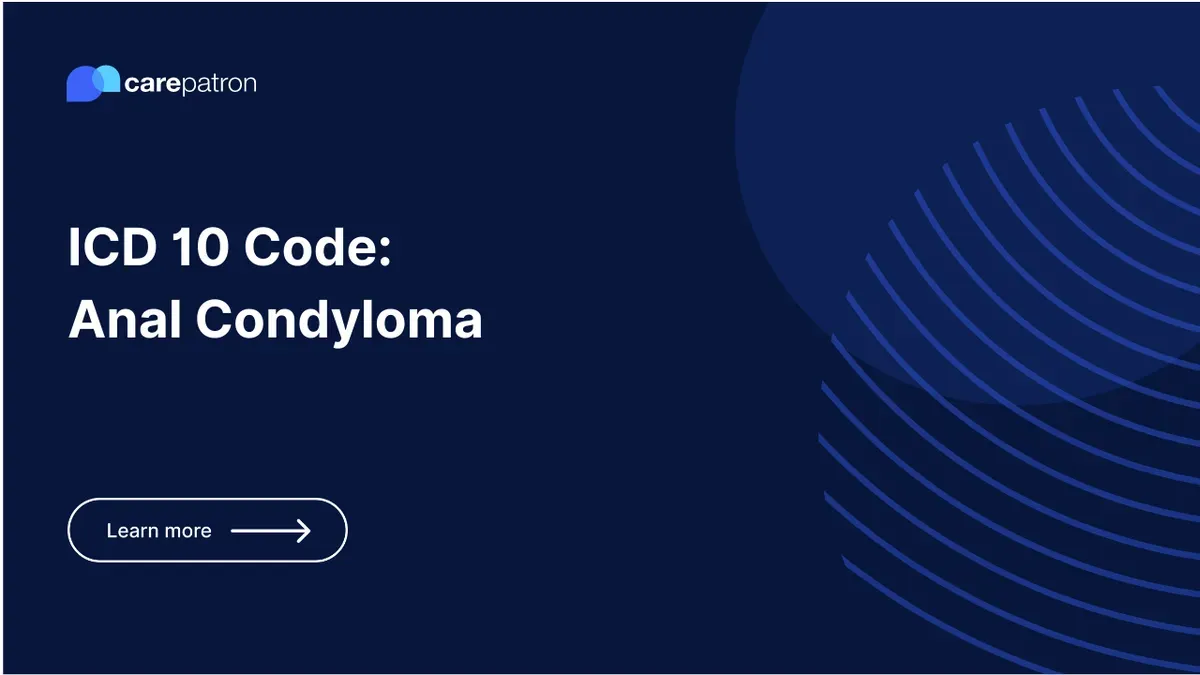
Anal Condyloma ICD-10-CM Codes
Get an in-depth look at Anal Condyloma ICD-10-CM codes for 2023. Learn about the commonly used codes, billability, clinical data, related terms, and answers to frequent questions.
Use Code
Commonly asked questions
Primarily, yes. Anal condylomas are commonly caused by specific strains of the Human Papillomavirus (HPV), a sexually transmitted infection.
While there's currently no cure for the virus that causes anal condyloma (HPV), the warts themselves can be treated and removed.
Yes, HPV vaccination can prevent the strains of HPV most commonly associated with anal condyloma and some types of cancer. It's recommended for both males and females.
EHR and practice management software
Get started for free
*No credit card required
Free
$0/usd
Unlimited clients
Telehealth
1GB of storage
Client portal text
Automated billing and online payments
